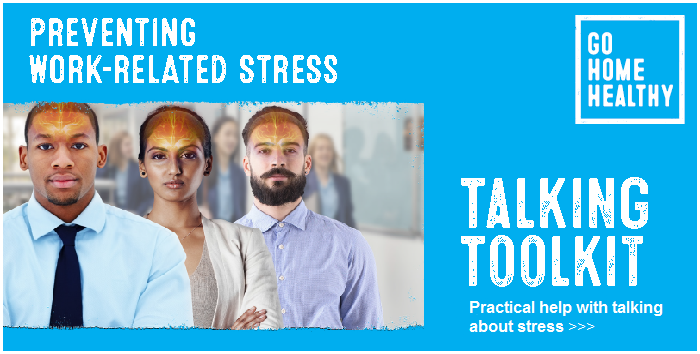Continuing on from our November article Focusing on Mental Health, C&C Consulting is keen to promote the HSE’s Talking Toolkit. This toolkit assists employers and their managers by encouraging them to conduct planned and informative conversations with employees as part of a work related stress prevention program.
Across Great Britain, work-related stress accounts for over half (57%) of all working days lost to ill health. In the last 12 months, over 600 000 workers reported suffering from stress, depression or anxiety, caused or made worse by work.
Stress symptoms
Stress affects us all at different times and in different ways. It can cause people to feel physically unwell, can cause mental health problems and can make existing problems worse. The chemicals that are released by your body as a result of stress can build up over time and cause various mental and physical symptoms.
- Anger, depression, anxiety, changes in behaviour
- Food cravings, lack of appetite,
- Frequent crying, difficulty sleeping (mental and physical), feeling tired
- Difficulty concentrating, dizziness, fainting spells
- Chest pains, cramps or muscle spasms
- Constipation or diarrhoea
- Nail biting, nervous twitches, pins and needles
- Feeling restless, a tendency to sweat, breathlessness
- Loss of interest in sex
- Muscular aches
It’s important to remember that it’s not an employer’s or a line manager’s job to diagnose or treat stress, whatever its cause. If an employee is having problems, it’s important that they get help as soon as possible.
Whether an employer is a small business or a large corporation, the law requires all employers to assess the risk of work-related stress and to put steps in place to tackle those risks.
Access the HSE Talking Toolkit here.











